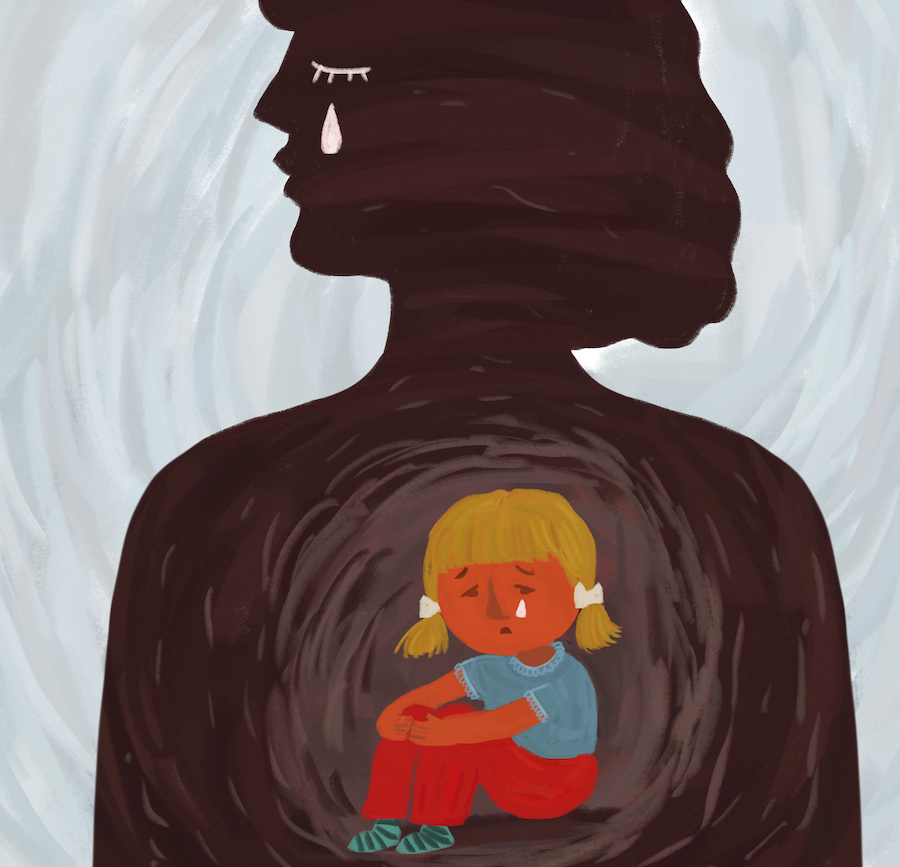Inside each of us, there’s a part that remembers our childhood. It’s often referred to as our inner child, and it influences how we navigate the complexities of adulthood.
Unresolved childhood wounds can manifest in patterns of self-criticism, perfectionism, or people-pleasing. They can shape our relationships, colour our interactions with others, and influence the boundaries we set. Understanding the role of our inner child empowers us to recognize and address these patterns with compassion and understanding.
Unpacking and Mourning Childhood
Childhood experiences, both positive and negative, leave lasting imprints and can shape who we are as adults. From the laughter of playground games to the sting of rejection or neglect, these memories shape our beliefs about ourselves and the world around us.
Folks might not realize the hurt they carry from childhood until they start speaking with a therapist or professional. This initial grief is common, and it’s ok to mourn your childhood. You’ve made the courageous first step in unpacking deep-rooted feelings; don’t forget to acknowledge your bravery.

Speaking Kindly to Your Inner Child
Learning to speak kindly to our inner child is an act of self-compassion. Here are some gentle ways to nurture and support this part of ourselves:
- Acknowledge Your Feelings: Take time to recognize and validate your emotions. When you’re feeling sad, scared, or hurt, acknowledge these feelings with compassion and empathy. Remind yourself that it’s okay to feel the way you do, and offer yourself comfort and understanding.
- Practice Self-Validation: Replace self-criticism with self-affirmation. Remind yourself of your worthiness and inherent value, affirming your right to love and acceptance. Repeat positive affirmations such as “I am enough,” “I deserve love and compassion,” or “I am worthy of happiness.”
- Engage in Positive Self-Talk: Cultivate a nurturing inner dialogue by speaking to yourself with kindness and encouragement. Challenge negative thoughts and beliefs with positive affirmations and compassionate statements. For example, if you catch yourself thinking, “I’m not good enough,” counteract it with, “I am worthy of love and respect just as I am.”
- Set Boundaries: Establish healthy boundaries in your relationships and daily life. Practice saying no to things that don’t serve you or make you feel uncomfortable. Surround yourself with people who respect and support you unconditionally.
- Write Yourself a Letter: Grab a pen and paper and write a letter to your inner child. Start by acknowledging the pain or struggles they may have experienced, then offer words of comfort, encouragement, and love. Remind them that you’re here for them and that you’ll always support and protect them.
- Practice Self-Care: Prioritize activities that nourish your soul and bring you joy. Whether it’s spending time in nature, practicing yoga, or indulging in a creative hobby, make self-care a priority. Honour the needs and desires of your inner child by treating yourself with kindness and compassion.

Embracing Growth and Healing
Embracing our inner child is a journey of self-discovery and healing. By honouring our past experiences and speaking kindly to our inner child, we pave the way for growth and transformation. Let us embrace this journey with open hearts, extending the same love and compassion to ourselves that we would offer to a cherished friend or loved one.
Caring for our inner child is an act of self-love and compassion. By recognizing the influence of our childhood experiences and learning to speak kindly to our inner child, we can nurture a deep sense of self-acceptance and inner peace.
Georgia Strait Women’s Clinic is a top-rated treatment centre for women in British Columbia. We offer treatment for substance use, mental health, PTSD, and trauma. If you’re struggling with mental health and/or addiction, visit our website or call us today to learn more about our programs and how we can support you.




